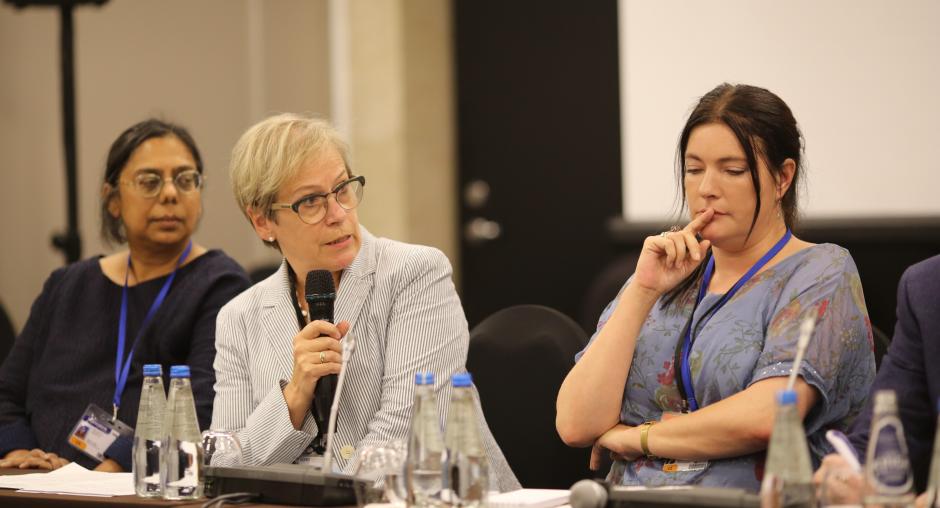The role of national referral mechanisms in protecting the rights of trafficked persons subject of event organized by ODIHR

The role of national referral mechanisms (NRMs) in protecting the rights of trafficked persons was addressed in an event organized by the OSCE Office for Democratic Institutions and Human Rights (ODIHR) in Warsaw on 18 September 2018, on the margins of the Human Dimension Implementation Meeting.
Participants explored how to design, implement and monitor sustainable mechanisms and structures to combat human trafficking and support its survivors. The meeting was also an opportunity to discuss good practices in countering human trafficking.
“The importance of establishing effective national referral mechanisms has been confirmed by participating States in numerous OSCE commitments and documents,” said Ingibjörg Sólrún Gísladóttir, Director of ODIHR. “ODIHR stands ready to support OSCE participating States in implementing NRMs and tackling human trafficking in a manner that puts a rights-based approach at the heart of the process.”
“NRMs must provide access to professional support for survivors of human trafficking and modern slavery. Support should meet the needs of the individual and include access to health and psychological care, legal advocacy, financial support and aftercare, including education and employment,” said Kevin Hyland, the Executive Director of the Irish Children’s Fund. “NRMs often provide victims with their only real opportunity to regain their freedom and recover.
The event was a component of ODIHR’s assistance to OSCE participating States in fulfilling their commitments to take a comprehensive human rights-based approach to combating all forms of trafficking in human beings. This assistance focuses on the establishment and strengthening of NRMs, promoting redress for survivors of human trafficking and ensuring a human rights-based approach in the process of returning victims to their countries of origin.
